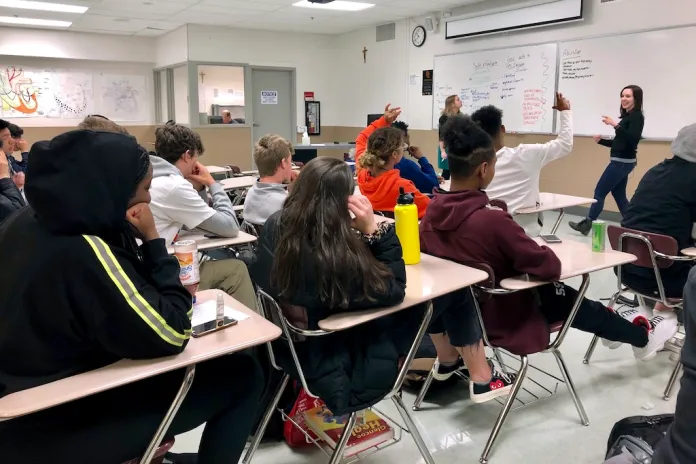Classical education beats AI-infested schools.
Why Classical Education is More Important Than Ever in the Age of AI
Modern education is imploding, especially with the advent of artificial intelligence like ChatGPT. Capable of generating computer code and business plans to jokes, fiction, and interpretations of images, ChatGPT made a splashy debut last year. Sam Altman, Open AI’s CEO, said, “It is going to eliminate a lot of current jobs” and “Education is going to have to change.”
ChatGPT prompted articles like, “The College Essay is Dead.” It sparked worries for an educational establishment battling declines in academic achievement, costs associated with higher education, and the drop in college-age demographics.
The Purpose of Education
Modern academia advocates education purely for labor, ignoring purposes beyond wage-earning. Few argue that poverty is desirable. Yet everyone knows purchasing power alone does not fully enrich life. Flourishing comes through lives well lived — through fruitful, fulfilling activities and everyday moments enhanced by increased understanding and creativity.
Classical education pursues higher aims, opposing the modern view. When greater goals are pursued, subordinate goals are also attained. An obvious example is literacy. When education provides comprehension of challenging material, the capacity to understand instruction manuals follows. But training students to read instruction manuals does not enable them to comprehend more beautiful, demanding, and beneficial writing.
Classical education achieves higher ends that also yield practical outcomes. We should not be afraid to pursue loftier goals because we fear lesser ones will not be achieved.
The Benefits of Classical Education
Classical education embraces “what the Greeks called telos, or an ultimate purpose.” Advocating for the classical telos, W.E.B Du Bois wrote in The Souls of Black Folk, “the true college will ever have one goal — not to earn meat but to know the end and aim of that life which meat nourishes.”
Below are four such benefits of classical education:
- Leisure: Classical education seeks to achieve a condition of restfulness, observing reality, and living harmoniously with oneself, others, and the world. This is an ambitious aim of learning — of “school.”
- Intellectual Freedom: Classically educated people know themselves, explore their own minds and the world they encounter, and apply their understanding with discernment. Classical education fosters liberty of authentically human thought, capable of unfettered insight and innovation.
- Lifelong Learning: Classical education seeks to light lifelong fires pursuing transcendent meaning, the mastery of material, and cultivated understanding. AI fails to light such fires. It regurgitates information, undermining independent human research, reasoning, and reflection.
- Personal Enrichment: Classical education makes life more enjoyable. These capacities, nurtured by classical education, enrich life — bringing to it pleasure, meaning, and edification.
AI generates passable poetry, but we should hardly be satisfied with that. Studies indicate AI may not only deprive us of the benefits of our own creativity and capabilities, but it may also handicap us as we become less thoughtful and creative. We should be wary of using AI to do the things that are good to do for ourselves.
Reclaiming Classical Aims
Classical aims engender aspects of a fruitful life: Leisure, freedom, lifelong learning, and enriched experiences all contribute to a life well lived. Modern academia has dismissed these aims. The advent of sophisticated AI strongly suggests the educational establishment should correct course. In pursuing the loftier aspirations of classical education, the liberal arts will rejuvenate academia. This will restore lives well lived.
Altman is correct. Education must change, not by reinventing itself, but by reclaiming the classical telos and cultivating classical aims.
" Conservative News Daily does not always share or support the views and opinions expressed here; they are just those of the writer."




